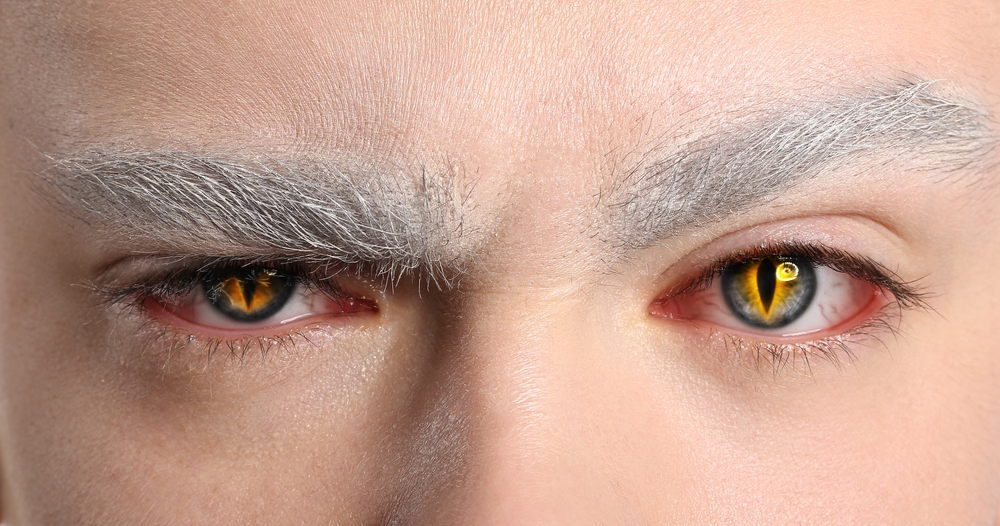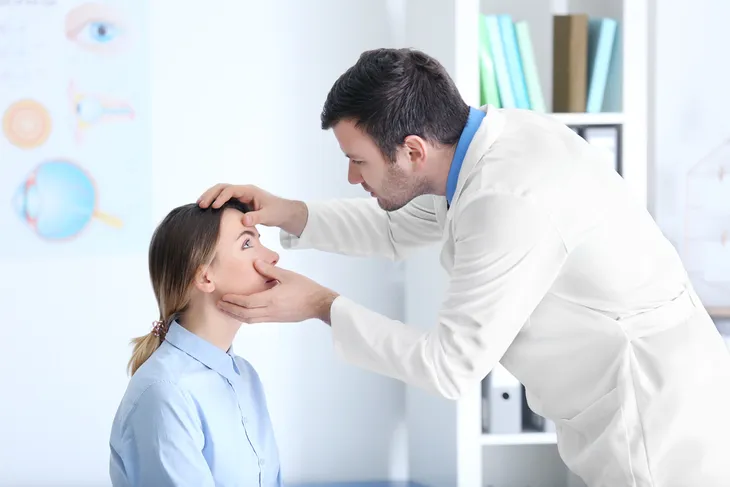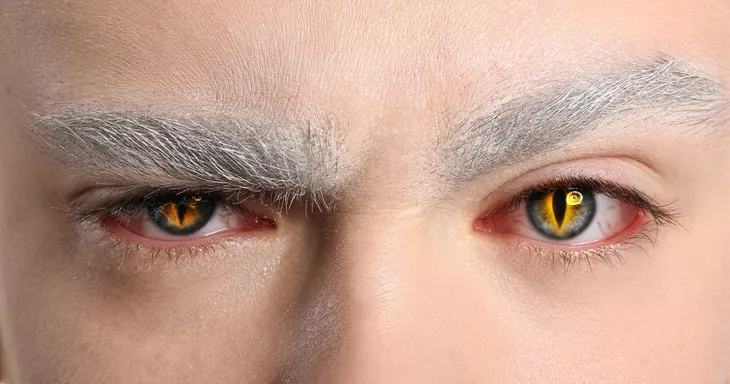Your appearance won’t be the only frightening thing about wearing costume contact lenses this Halloween. Your eyes might look like a lizard’s for an evening, but the risk of permanent vision loss may not be worth the temporary thrill.
According to the Centers for Disease Control and Prevention, over 40 million, or about one in six, Americans wear contact lenses. It is difficult to estimate how many revelers wear costume contact lenses, but the number surely surges around Halloween. It is my experience that the demand for these lenses is highest in young people, the same demographic that is at the highest risk for experiencing infectious and inflammatory complications from their contact lenses.
As an optometrist on staff at a Central Ohio private practice and on faculty at The Ohio State University College of Optometry, I frequently work with patients who wear contact lenses. Most of them do not realize that the Food and Drug Administration classifies all contact lenses as either Class II or Class III medical devices. That means that contact lenses are medical devices that pose at least a moderate risk to health when used without the appropriate oversight from an eye doctor.
Fungi, infections and parasites…oh my
All contact lenses have the potential to cause serious complications in the eye. Contact lens wearers are at a higher risk than nonwearers for eye infections from bacteria, fungi and parasites. An infection from one of these microscopic organisms can rob you of your central vision.
Also remember that a contact lens is a piece of plastic that covers the eye and can prevent oxygen from reaching its front surface. New blood vessel growth, redness, watering and pain are all signs and symptoms that an eye is starved for oxygen.
Most contact lenses are generally safe for patients who wear them in adherence with instructions from their eye doctor. The problem is that many patients are not adherent, displaying at least one high-risk contact lens behavior, research has shown. Although there is no comprehensive study on the issue, eye doctors hear plenty of anecdotal evidence that risky behaviors increase in patients wearing costume contact lenses.
Of those risky behaviors, sleeping in your contact lenses is perhaps the most dangerous. In fact, it puts you at a high risk of getting an infection in your cornea, the clear dome that covers the front of the eye.
It is not hard to think of reasons why patients may be tempted to sleep in their costume contact lenses. First, they likely think of their contact lenses as cosmetic accessories, not durable medical devices. Second, they might not wear contact lenses outside of Halloween time and are therefore unaware of the risks associated with contact lens misuse. Finally, an adult beverage or two probably distorts the decision-making processes of otherwise compliant contact lens wearers. They just want to get to bed – removing their contact lenses can wait for tomorrow!
Decorative contact lenses are also risky because they might not fit your eye as they should. Contact lenses are not one-size-fits-all. They come in different materials, shapes and sizes. Only with the help of your eye doctor can you determine if a contact lens is healthy for your eye. This is the reason that the sale of nonprescription costume contact lenses is illegal in the United States. Poorly fitting costume contact lenses can cause many eye problems, including surface abrasions, allergic reactions and blurred vision.
But go ahead…live a little, with a doctor’s help
Still, costume contact lenses can be a safe, fun way to spice up your Halloween ensemble.
The process begins with a comprehensive eye examination by an optometrist or ophthalmologist. After ensuring that your eyes are healthy and that you are seeing well, your doctor will fit you in contact lenses that are safe for you to wear. You will also receive instructions on how to clean and handle your lenses and on how long you can wear them. At the end of the exam, your doctor will give you a prescription for the contact lenses. Now you’re ready to go.
Use this prescription to purchase your lenses through a trusted vendor, such as your local optical shop. While buying costume contact lenses online is certainly convenient, you need to know that online retailers of costume contact lenses may be unregulated and may provide you with a lens that is dangerous to wear. Remember, the FDA requires that a prescription accompany all purchases of costume contact lenses. Any website selling these lenses without a prescription is breaking the law, and the FDA wants to know about it.
If you decide to wear costume contact lenses this Halloween, you need to be aware of symptoms that might indicate that your lenses are causing a problem. Red eyes, blurred vision, pain and light sensitivity are all possible indicators of potentially serious contact lens complications.
If you experience any one of these symptoms, remove your contact lenses immediately and then call your local optometrist or ophthalmologist for further instruction. Most episodes of complications can be effectively treated with prescription eye drops. But it’s best to avoid all instances of contact lens complications, because some can lead to blindness.
[ Deep knowledge, daily. Sign up for The Conversation’s newsletter. ]
Remember, although they are an exciting accessory, costume contact lenses are not toys. Serious, vision-threatening consequences can follow even one night of mishandling or sleeping in costume contact lenses. If you want to wear them, be sure you visit your eye doctor for a prescription and avoid online retailers that do not require a prescription.
As for me, I will stick with my clear prescription contact lenses this Halloween. Donning pointy ears and long whiskers will make me look like a cat, plenty enough.
Phillip Yuhas, Assistant Professor of Optometry, The Ohio State University
![]()
This article is republished from The Conversation under a Creative Commons license. Read the original article.






